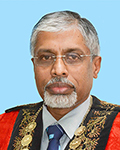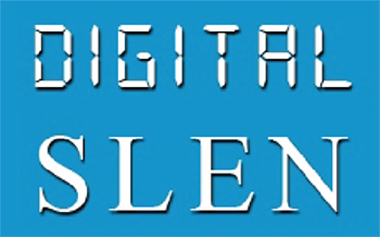President's Message

Eng. Prof S B S Abayakoon
Fellow Engineers,Dear Readers
As the President of Institution of Engineers, Sri Lanka for the session 2019/2020, I am privileged to commence addressing you through ‘Sri Lanka Engineering News’ newsletter. Let us together, as a group, try our best to discuss, initiate, and sustain action on engineering related issues and problems that are of national importance while safeguarding the interests of our institution.
There is no doubt that Engineering plays a key role in supporting the growth and development of a country’s economy as well as in improving the quality of life for it’s citizens. Therefore economic development of a country is closely linked to it’s engineering capacity. However, the extent to which engineering can aid development is also dependent upon how the government commits financial and other resources required for infrastructure projects, as well as how serious it is in developing a favourable business environment with good regulation and without corruption.
For many years now, there is a continuing complaint from the public sector, the private sector and also the public in general that a good percentage of graduates produced by our Universities are not capable of handling the challenges they are expected to face. Although this is directed at graduates in general, we, as engineers also should look back at ourselves critically and assess whether we continue to fulfill our duties in the best possible manner. A large majority of us have excelled in the GCE (A/L) examination and entered universities that are sufficiently equipped to instill theoretical and practical aspects of engineering at their respective faculties. Universities take great efforts to regularly update their curricula, to select the teaching staff by following very stringent criteria and to train both academic and non-academic staff through several modern programs. Many opportunities are provided for the students as well as the teaching staff to acquire new knowledge. Therefore, I believe that, in the knowledge front, our engineers are second to none.
However, since graduation, while being employed as engineers working in Sri Lanka, do we have an environment where we are free to practice engineering the way it should be practiced? How many of us are placed at positions where we are expected to make decisions that greatly impact development of the nation? Are we satisfied that the decisions we have made so far are one hundred percent correct both technically and ethically? How many of us had to keep our valuable thoughts within ourselves because of possible repercussions of letting them out? How many of us were forced to accept and implement certain decisions that we know are detrimental to the nation?
The answer to most of these questions and many others of similar nature lie within one phrase “Ethical practice of engineering”. If we, members of IESL, together as a group, keep “Ethics in Engineering” as the paramount principle in all our dealings, we can practice engineering without any fear of repercussions and we will be a force to reckon with. The important fact is to be “together” as one voice.
Engineering ethics is the field of applied ethics and system of moral principles that apply to the practice of engineering. The field examines and sets the obligations by engineers to society, to their clients, and to the profession. The central question of ethics is “What ought one to do?” Whenever we are faced with this question we are dealing with ethics. The answer should be based usually in terms of rights, obligations, benefits to society, fairness, etc. I urge all of you to revisit the IESL code of ethics where the expected principles are grouped into 8 clauses. The clauses are further described as a set of rules under each clause. Whenever you are faced with a question, please, please, deal with it bearing in mind the IESL code of ethics. Please ask yourselves whether you are violating any one or more of the ethical principles that govern our profession.
While describing the general principles in Engineering ethics, I would like to quote the following from Wikipedia (https://en.wikipedia.org/wiki/Engineering_ethics) on “Whistleblowing” that is applicable, more often than not, in the way engineering is practiced in Sri Lanka.
“A basic ethical dilemma is that an engineer has the duty to report to the appropriate authority a possible risk to others from a client or employer failing to follow the engineer's directions. According to first principles, this duty overrides the duty to a client and/or employer. An engineer may be disciplined, or have their license revoked, even if the failure to report such a danger does not result in the loss of life or health.
In many cases, this duty can be discharged by advising the client of the consequences in a forthright matter, and ensuring the client takes the engineer's advice. In very rare cases, where even a governmental authority may not take appropriate action, the engineer can only discharge the duty by making the situation public. As a result, whistleblowing by professional engineers is not an unusual event, and courts have often sided with engineers in such cases, overruling duties to employers and confidentiality considerations that otherwise would have prevented the engineer from speaking out.”
One of the case histories that is quoted often as an engineering tragedy is the space shuttle challenger disaster of 28th January 1986 where all seven crew members: five NASA astronauts, one payload specialist and a civilian school teacher were killed, 73 seconds into the flight. The disaster occurred because of the shuttle breaking apart and it was caused by the failure of “O – ring” seals used in the joint that were not designed to handle the unusually cold conditions that existed at the launch. President Ronald Regan appointed a special commission to investigate the accident. In the commission report it was stated that Engineers who were at the flight centre wrote to the manager of the Solid Rocket Booster project, on several occasions suggesting that the field joint design that was to be implemented was not acceptable. For example, one engineer suggested that joint rotation would render the secondary O-ring useless, but the memos containing these suggestions were not sent to the appropriate authorities. Can we now call it an engineering tragedy or is it a disaster in management?
Let us, in the session 2019/2020 concentrate on establishing “Engineering Ethics” to the letter in our professional practice. As a first step, let us all revisit the IESL code of ethics and cultivate a culture of adhering to them, one hundred percent, at our workplaces. Let us train ourselves and those engineers joining the profession to call “spade a spade” irrespective of possible repercussions. Development of such a group of engineers will strengthen the IESL that will in-turn reinforce the IESL’s efforts for better recognition of our views within the country. Then, and only then, can we, as a group, properly face the challenges of developing the country for the next generations.
Eng. Prof S B S Abayakoon
President - IESL 2019/2020
